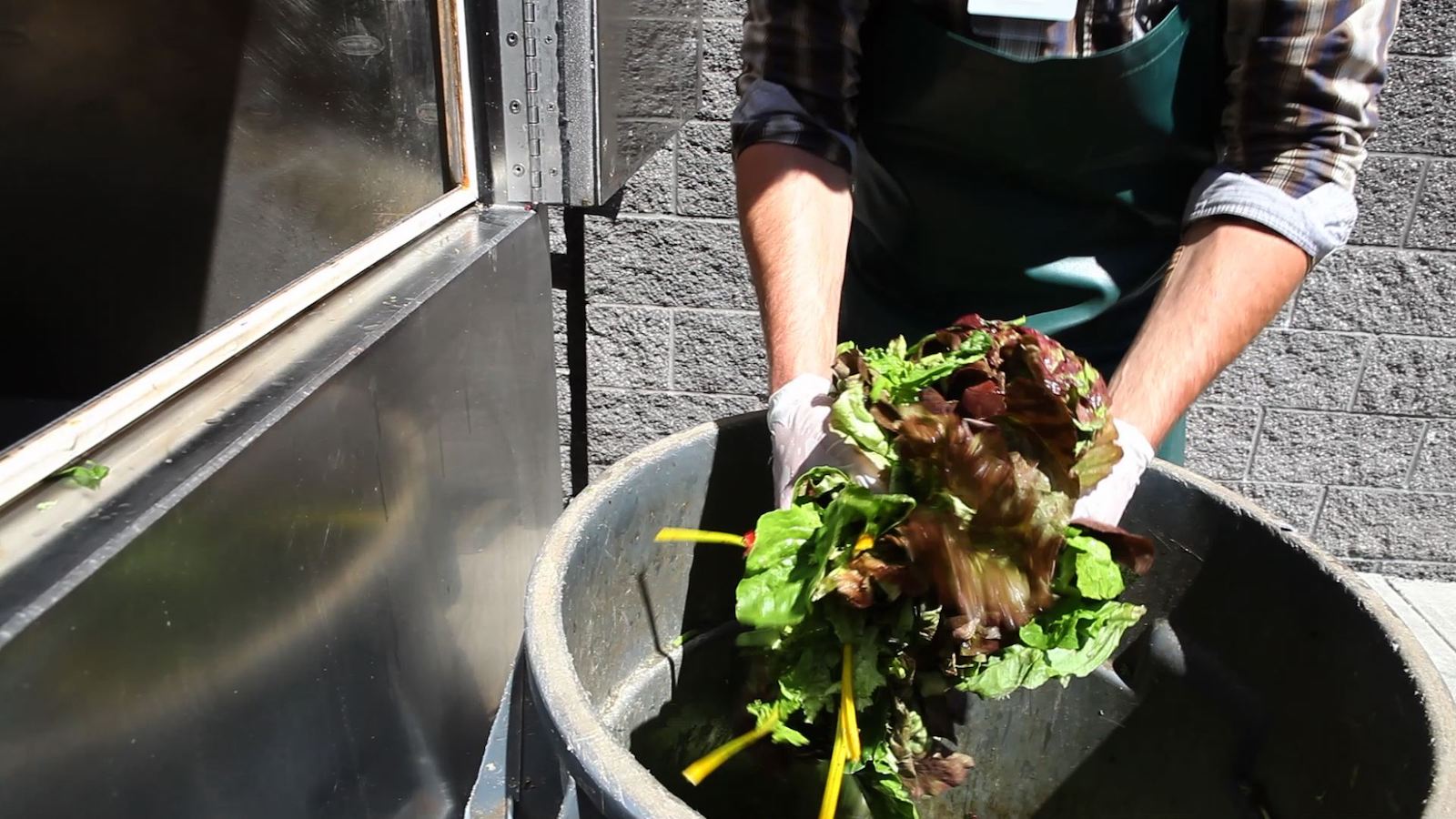The Local newsletter is your free, daily guide to life in Colorado. For locals, by locals.
Starting on May 1, Denver got a little greener. That was the day that Certifiably Green Denver—the city’s sustainability program that helps businesses green their practices—launched its Food Waste Pilot Program in the Mile High City. This is a monumental step toward reaching the City and County of Denver’s climate action goals because the program’s focus is on restaurants.
Food waste is one of the largest generators of greenhouse gas emissions and, according to the Denver Department of Public Health & Environment (DDPHE), restaurants generate 25 percent of that waste. The participating eateries—Ale House, Ash’Kara, Bar Dough, the Bindery, Black Eye Coffee, Little Man Ice Cream, Ohana Island Kitchen, Prosperoats, Wooden Spoon, and Uncle—aim to reduce food waste at the source, donate pre-consumer food leftovers, and recycle through composting. (Root Down and parent company Edible Beats are already active leaders in this sector and are participating on a consulting basis.)

“Working with restaurants on this makes so much sense because chefs already are trained to create their menus using as much of any given ingredient as possible,” says Susan Renaud, Community Engagement Administrator for DDPHE’s Certifiably Green Denver. “Chefs also are such visible and valuable contributors to our community, and their attention to food waste will help us reach a larger audience.”
The hope is that once consumers—who are responsible for 41 percent of food waste—see the steps restaurants are taking, they’ll apply the same lessons to their own households. Look for public-facing information at participating restaurants in the form of table tents, check inserts, takeout containers, and neighborhood events. “As a pilot, it’s always experimental,” Renaud says. “We’re taking advantage of as many opportunities as we can find.”
The program is part of the City’s Food Matters project, a collaboration with the Natural Resources Defense Council (NRDC). Denver and Baltimore were the only two cities chosen by the NRDC in 2018 to target multiple strategies for preventing food waste. In the fall, the Food Waste Pilot Program will launch citywide with the intention of recruiting a wider range of restaurants.
For more on food waste and what you can do, read Callie Sumlin’s comprehensive story.








